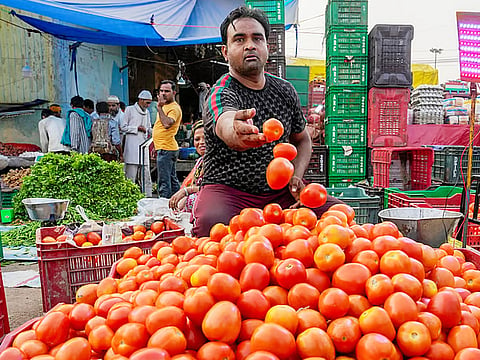Digital dreams, tax nightmares: Indian vegetable vendor gets a Rs2.9 million tax notice
Sale of fresh fruits and vegetables is usually exempt from general sales tax

Shankargouda Hadimani runs his small vegetable stall on a corner near the Municipal High School in Haveri, Karnataka, He sells fresh produce and accept UPI and wallet payments from customers who no longer carry cash. It was quick, convenient, and safe.
Then came the shock.
One morning, Shankargouda received a notice from the Goods and Services Tax (GST) department. Since he had processed digital transactions worth Rs 16.3 million (Dh70,000), the tax department demanded Rs 2.9 million (Dh120,000) in GST dues, the Bengaluru-based Deccan Herald newspaper reported.
While the sale of fresh fruits and vegetables is exempt from GST, digital payments leave a trail that trail can be reviewed by tax officials. Once transactions cross a certain threshold, it is flagged up for scrutiny. With no formal books or accounting support, small traders like Shankargouda are unable to explain their earnings or prove they don’t owe taxes.
Such stories are becoming more common across India. As the government pushes toward a cashless economy under the Digital India initiative, UPI has become a lifeline for both consumers and small vendors.
But its increased visibility has brought unintended consequences. Several unregistered small traders are now receiving GST notices simply because their digital transaction volumes appear large.
The report evoked mixed reaction on social media. Some said the vegetable vendor should pay tax since it is like any other business. Others said this could deter small traders from accepting UPI payments to avoid a digital trail, and that would inconvenience buyers.
Sign up for the Daily Briefing
Get the latest news and updates straight to your inbox





